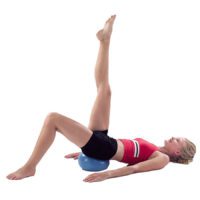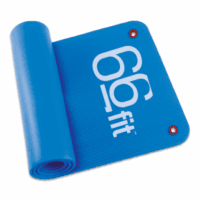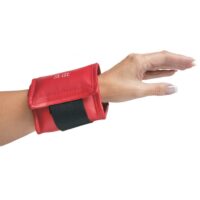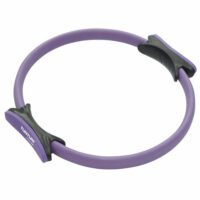Injuries & Conditions
Injuries & Conditions
A Comprehensive Injuries & Health Conditions Guide

Managing & Understanding Injuries in an Active Lifestyle
Injuries, while an inevitable part of life, are relatively infrequent occurrences. Embracing an active lifestyle offers extensive benefits for both physical and mental well-being, far outweighing the temporary challenges posed by potential injuries. This guide aims to provide insights into injury management, prevention, and the role of physiotherapy in fostering a healthy, active life.
Advancements in Medical and Physiotherapy Care for Injuries
With each year, medical care, especially in the field of physiotherapy, evolves significantly. Physiotherapists and doctors play a crucial role in the day-to-day management of injuries, leveraging their deep understanding and experience in this domain. They are at the forefront of implementing the latest research and techniques to offer the best care possible.
The Prevalence and Impact of Sports Injuries
Sports injuries are a common concern, affecting athletes and physically active individuals alike. These injuries can range from minor sprains to more serious conditions requiring extensive treatment and rehabilitation. The key to managing these injuries effectively lies in prompt and accurate assessment, diagnosis, and a tailored management plan.
Recent Research and Developments in Injury Management
Recent studies in physiotherapy have shed light on new methods and approaches to injury management. For instance, research has highlighted the effectiveness of specific exercise regimes in speeding up recovery and preventing future injuries. Advances in technology, such as wearable devices, also play a significant role in monitoring recovery and preventing overexertion.
Physiotherapy for Injuries: Beyond Treatment
Physiotherapy extends beyond just treating injuries; it encompasses injury prevention, education, and holistic management. Physiotherapists are equipped to guide patients through recovery and provide strategies to prevent recurrence. This includes advice on proper techniques, strength and conditioning exercises, and lifestyle modifications.
Injury Prevention: A Key Focus
Preventing injuries is as crucial as treating them. Effective injury prevention involves understanding the risk factors, adhering to appropriate training routines, and implementing preventive measures such as warm-up exercises and using the right equipment. Education on body mechanics and movement patterns is also vital.
What to Do in Case of an Injury?
If you experience an injury, the first step is to seek professional advice from a physiotherapist or doctor. They can provide a comprehensive assessment and create a customised treatment plan. It’s important to follow their advice closely and engage in prescribed exercises and follow-up sessions for optimal recovery.
Consulting with a Physiotherapist
For anyone dealing with a sports injury, consulting with a physiotherapist can lead to a quicker and more effective recovery. Physiotherapists offer professional guidance, from accurate diagnosis to the formulation of a management plan tailored to individual needs.
Injury Information and Self-Help Guidance
Our website provides detailed information about various injuries. These resources can assist in understanding specific injuries and their management techniques. However, they should complement, not replace, professional advice.
Conclusion: Embracing a Proactive Approach
Injuries don’t have to be a setback. With the right approach, including timely consultation with a physiotherapist, adherence to prescribed treatment plans, and a focus on prevention, individuals can maintain an active lifestyle safely and effectively.
Take Action: Seek Professional Advice
If you’re dealing with an injury or want to learn more about preventing one, consult with a physiotherapist. They can provide valuable insights and guidance tailored to your specific needs and goals. Please seek their professional advice to improve your injury management and shorten your recovery period.
Rochedale - Call 38410277
Book Online: RochedaleSalisbury - Call 32751044
Book Online: SalisburySandgate - Call 32691122
Book Online: SandgateRelated Articles
- Soft Tissue Injury Healing: This article provides a comprehensive guide on managing muscle injuries, covering everything from diagnosis and treatment to prevention and the importance of professional advice.
- Back Pain Physiotherapy: It discusses the causes, treatments, and preventive measures for lower back pain, highlighting the importance of physiotherapy and ergonomic adjustments.
- Knee Ligament Injury: Offers insights into knee pain, including diagnosis, ligament issues, and treatment methods, emphasising the role of physiotherapy in recovery.
- Biomechanical Analysis for Injury Prevention: Explains how biomechanical analysis can help identify and correct faults that may lead to injuries, thus playing a crucial role in prevention.
- Effective Tendinopathy Physiotherapy Treatment Strategies: Discusses the management of tendinopathies, highlighting the differences between tendinitis and tendinopathy, and outlines effective treatment strategies.
- Rotator Cuff Injury: Covers the management and rehabilitation of rotator cuff injuries, including post-operative care and exercises to regain strength and mobility.
- Acute Sports Injury Clinic: Focuses on sports physiotherapy and its importance in treating and preventing injuries specific to athletes and sports enthusiasts.
- Sports Physiotherapy Treatment: Offers a broad overview of muscle injuries common in various sports, providing guidance on management, prevention, and the significance of professional advice.
- Sports Injury Management: Explores comprehensive strategies for managing sports-related injuries, including diagnosis, treatment, and preventive advice to avoid future injuries.
- Running Injuries: This article provides detailed information on common running injuries, their causes, symptoms, and treatment options to help runners manage and prevent these conditions.










































































